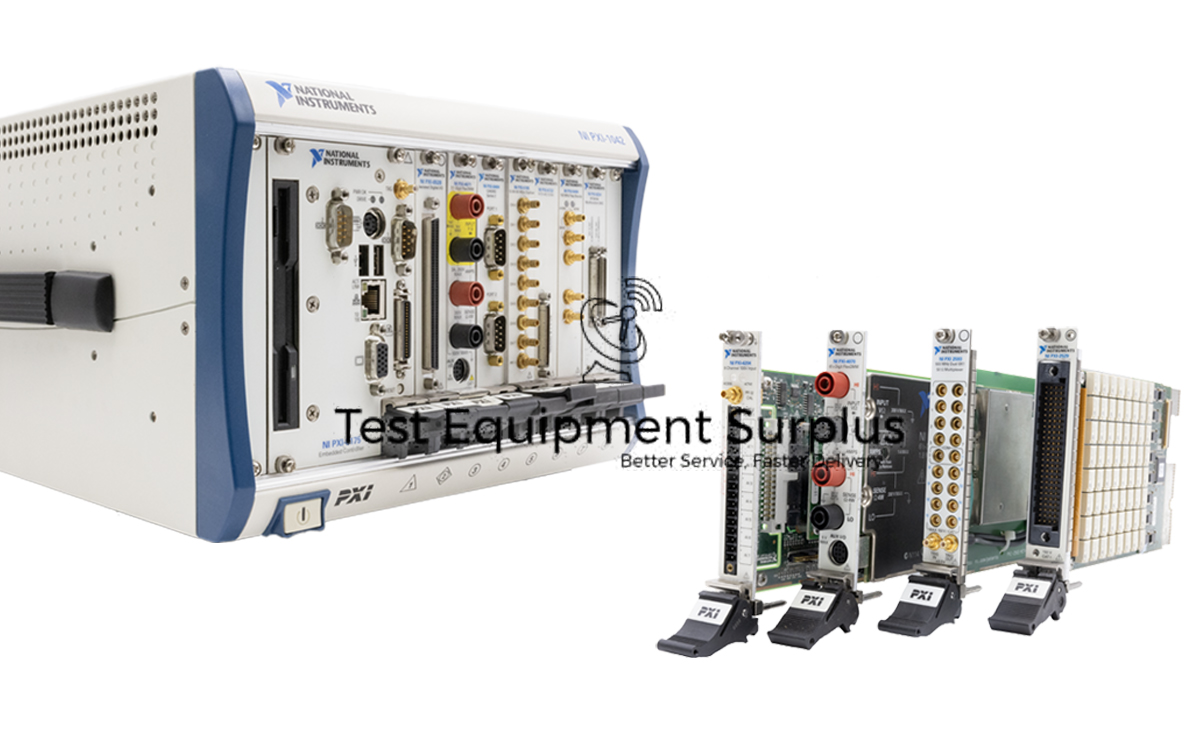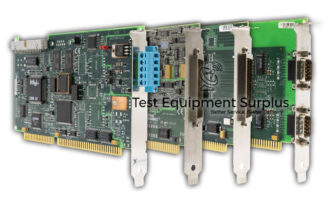Description
The National Instruments PXI-2558 PXI RF Relay Module, with part number 778572-58, is a versatile SPDT (Single-Pole Double-Throw) switch module designed for applications such as video switch networks and high-channel-count multiplexers. Its typical use cases include enabling adaptability in signal routing and ensuring uniform signal paths across multiple channels.
An ideal Voltage Standing Wave Ratio (VSWR) for this module is 1, signifying perfect equivalence, however, a VSWR of 1.8 or less at the user’s frequency of interest is considered acceptable and sufficient to prevent source damage. It’s noteworthy that the switch bandwidth is not specified as it is independent of the VSWR specification, emphasizing the importance of evaluating VSWR performance within the context of the user’s specific application frequency.
When determining the best RF switch for an application, topology is a crucial consideration, and users must check the insertion loss specification at the frequency they intend to work with to ensure compatibility with their system’s requirements.
| Attribute | Specification |
|---|---|
| Product Name | National Instruments PXI-2558 PXI RF Relay Module |
| Part Number | 778572-58 |
| Type | SPDT (Single-Pole Double-Throw) Switch Module |
| Application | Video switch network, high-channel-count multiplexers |
| Typical Use Case | Adaptability in signal routing, maintaining uniform signal paths |
| Ideal VSWR | 1 (Equivalence) |
| Acceptable VSWR | 1.8 or less at the frequency of interest |
| Switch Bandwidth | Not specified; independent of VSWR |
| Topology Considerations | Important when selecting an RF switch |
| Insertion Loss | Check specification at user’s frequency of application |
Question 1: What are the acceptable Voltage Standing Wave Ratio (VSWR) levels for the National Instruments PXI-2558 PXI RF Relay Module when assessing its suitability for a specific frequency in an application?
Answer 1: The acceptable Voltage Standing Wave Ratio (VSWR) for the National Instruments PXI-2558 PXI RF Relay Module is 1.8 or less at the user’s frequency of interest to prevent source damage.
Question 2: What is the acceptable Voltage Standing Wave Ratio (VSWR) for the National Instruments PXI-2558 PXI RF Relay Module in applications where preventing source damage is crucial?
Answer 2: The acceptable Voltage Standing Wave Ratio (VSWR) for the National Instruments PXI-2558 PXI RF Relay Module at a user’s frequency of interest is 1.8 or less; it is significant to check the insertion loss specification at the intended frequency to ensure that the module is compatible with the system’s requirements and to prevent any potential damage to the source due to impedance mismatches.
Question 3: What is the acceptable Voltage Standing Wave Ratio (VSWR) for the National Instruments PXI-2558 PXI RF Relay Module at a user’s frequency of interest, and why is it significant to check the insertion loss specification at the intended frequency?
Answer 3: The National Instruments PXI-2558 PXI RF Relay Module is typically used in video switch networks and high-channel-count multiplexers, where adaptability in signal routing is necessary, and a Voltage Standing Wave Ratio (VSWR) of 1.8 or less is considered acceptable for this module.
Question 4: What are the typical applications of the National Instruments PXI-2558 PXI RF Relay Module, and what VSWR is considered acceptable for this module?
Answer 4: The acceptable Voltage Standing Wave Ratio (VSWR) levels for the National Instruments PXI-2558 PXI RF Relay Module are 1.8 or less at the user’s frequency of interest.
Question 5: What considerations should be taken into account when selecting the National Instruments PXI-2558 PXI RF Relay Module for integration into a high-channel-count multiplexer or video switch network application?
Answer 5: When selecting the National Instruments PXI-2558 PXI RF Relay Module for integration into a high-channel-count multiplexer or video switch network, it is important to consider the acceptable Voltage Standing Wave Ratio (VSWR) of 1.8 or less at the desired operating frequency, the insertion loss specification for compatibility with the system requirements, and ensuring that the switch topology aligns with the application’s adaptability and signal routing needs.



